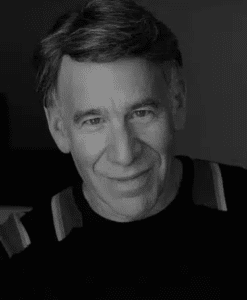DCPA NEWS CENTER
Enjoy the best stories and perspectives from the theatre world today.
Enjoy the best stories and perspectives from the theatre world today.
Stephen Schwartz, Composer/Lyricist for Wicked
Reprinted by permission of Wicked

Stephen Schwartz
How long did it take you to bring Wicked to life?
Stephen Schwartz: We actually were working on the show about four years, which is pretty fast for a big Broadway musical…. Once I had heard about [Wicked] from [my friend] Holly Near, it took awhile to secure the rights, because Universal had them – actually Demi Moore’s production company had them. I had to follow a trail through her production company to Universal to [producer] Marc Platt (who was in charge of the studio at that time). And then persuade him to consider doing it as a stage musical as opposed to a film. We spent a lot of time before starting to really write at all. We spent about a year at least – Winnie [Holzman, who wrote the musical’s book], Marc Platt and I – working on an outline. We went through several drafts of the outline, until we really felt we had the story telling right.
It’s a very complicated story to work out; there’s a lot of plot, there are a lot of relationships between the characters that either had to be used or dropped, there are a lot of surprises and twists and turns to the plot that needed to be figured out so everything worked logically. It was almost like plotting a mystery novel. I remember reading an interview with J.K. Rowling who of course wrote the Harry Potter books and how she had spent a year working out the world – for example, the rules of Quidditch – before she wrote anything. We did a similar amount of work. Once we started writing, even though things have changed and will continue to change, songs get dropped or re-written, or scenes get combined, the essence of the show and the structure of it hasn’t changed. When Joe Mantello came in as director, he of course had several ideas and suggestions, many of which we are doing because we thought they were terrific, but nothing of which I would call really substantially changing the structure.
What actually attracted you to the project?
SS: First, I’m often attracted to an idea that takes a familiar story and spins it, looking at it from another direction, like Stoppard’s Rosencrantz and Guildenstern Are Dead. For whatever reason, I like it when I see things like that, and I like to write them. For me, if you take a familiar story – whether it be the Book of Genesis or The Wizard of Oz – and you come at it from another point of view, the tension between the audience’s preconception and the approach you’re taking to the story adds an extra level of response, plus it helps to clarify the points you’re trying to make.
Second, the idea of taking what is one of the iconic villains of American culture, the Wicked Witch of the West – so much “the villain” that we don’t even know her name – and looking at the story from her point of view, that seemed to me a brilliant concept. It was clear a show about her could explore some of my favorite themes: the difference between surface appearances and what’s really going on underneath, how life is more complex and has more ambiguity than we tend to be comfortable with and, certainly, than our public discourse admits to. When I thought I wouldn’t get the rights to Wicked, I started making lists of other famous villains whose stories I could spin – Iago, Judas, the wicked queen in Snow White – but none of them seemed as colorful to me, pardon the pun. There is something so ingrained in our consciousness about the Wicked Witch of the West that she was already beloved, in a strange way.
Thirdly, the character and her world were obviously inherently musical. Oz is a fantastical, larger-than-life setting full of characters who almost demand to sing, and the witch herself is so full of big emotions – rage and ambition and longing – I just thought the idea was screaming to be a musical.
Your score is very varied.
SS: Actually, I hoped and meant for it – with the exception of “Wonderful,” which is obviously a deliberate pastiche number because it’s sung by the Wizard, who is not from Oz and therefore is meant to sound American. But for the rest of the score, I really did try to come up with a sound that you couldn’t quite place where it was from, that there was nothing that suggested a specific either American or sort of “Earth” genre.
There were songs that were featured in the San Francisco tryout of Wicked that were subsequently cut from the Broadway production. Is there any chance of hearing them?
SS: I’m actually thinking of doing a CD that’s called “Murdered Darlings.” I’m not kidding. I have this plan. I’ve put out a couple of CDs of just me singing and thought “Maybe I’ll do a CD with a bunch of people singing (like my friend John Bucchino’s ‘Grateful’ CD).” I thought, “What could I do?” and then I thought, “You know what? People are always asking me about this cut song or that cut song and between the shows and the Disney films, I have about a dozen cut songs that I think are worthy of hearing.” I don’t know that I’ll do that right away but I know for sure of two songs from Wicked that will show up.
DETAILS
Wicked
Jul 24 – Aug 25, 2024 • Buell Theatre
Tickets
